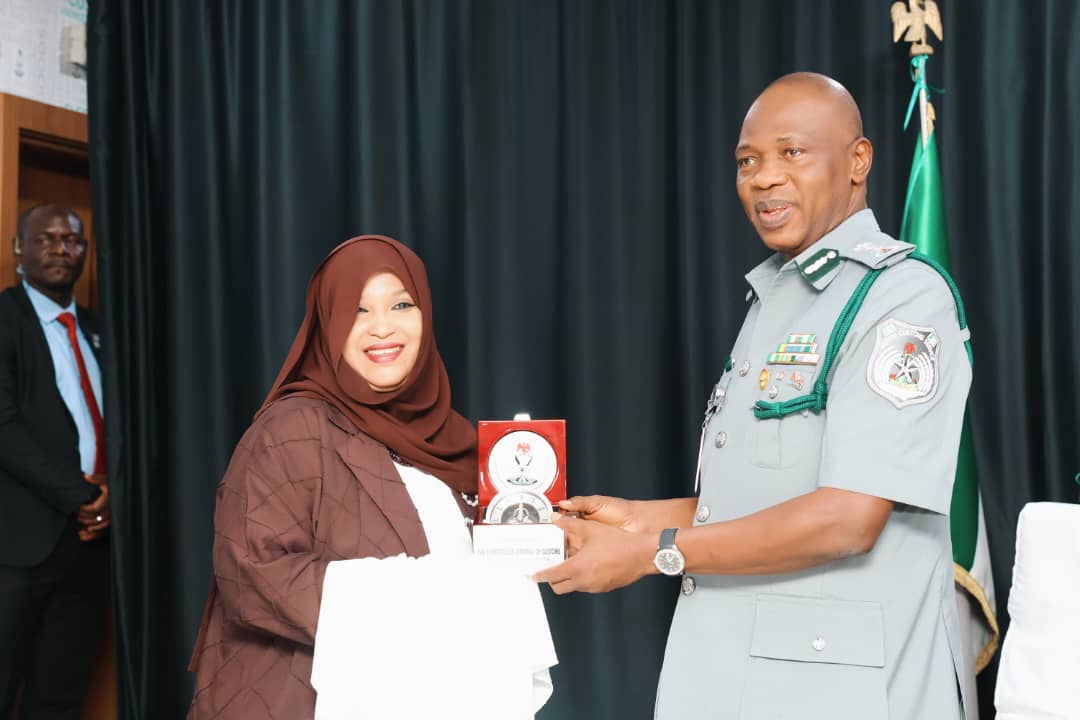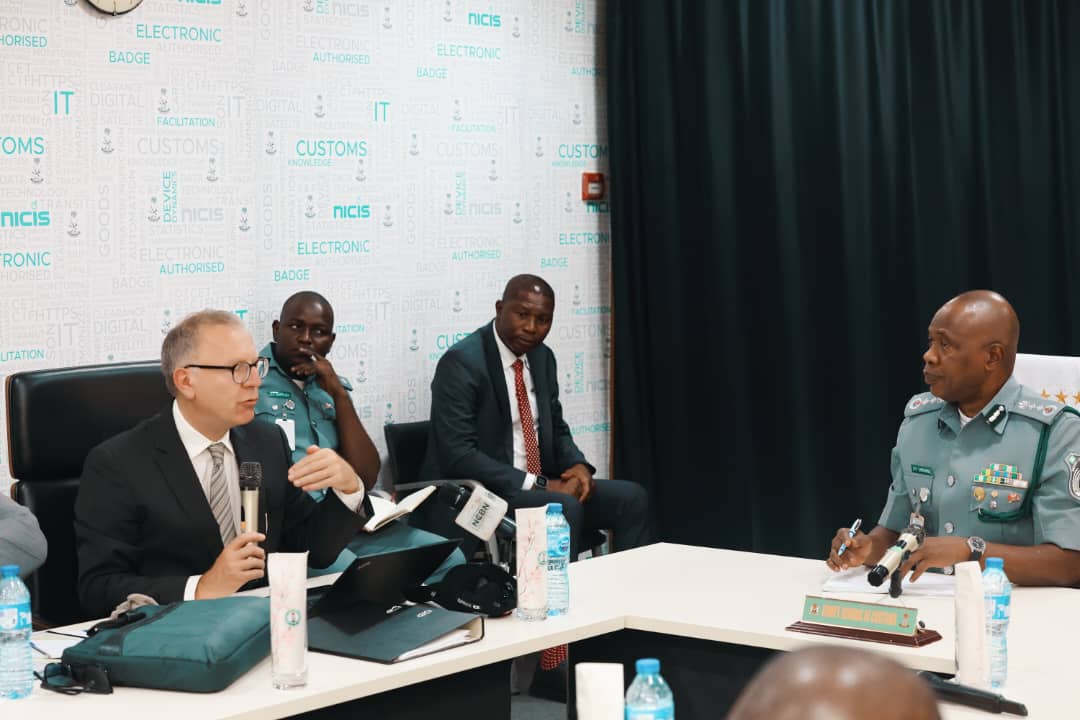Finance
Nigeria Largest Refinery ‘s Plan – NY Times Report

Nigeria Largest Refinery ‘s Plan – NY Times Report
Nigeria Largest Refinery ‘s Plan – Mr. Dangote is building a $12 billion oil refinery on 6,180 acres of swampland that, if successful,— could transform Nigeria’s corrupt and underperforming petroleum industry. It is an entrenched system that some say has contributed to millions languishing in poverty and bled the “giant of Africa’’ for decades.

CAPTION: Nigeria Largest Refinery ‘s Plan – Construction workers at the Dangote Oil Refinery, which is being built on the outskirts of Lagos, Nigeria. The $12 billion project is planned as the world’s largest refinery. CreditCreditAkintunde Akinleye/Reuters
It is here in this vibrant metropolis of 21 million people that Africa’s richest person, Aliko Dangote, is undertaking his most audacious gamble yet. Planned as the world’s largest refinery, Mr. Dangote’s project is set in a free-trade zone between the Atlantic Ocean and the Lekki Lagoon, an hour outside the city center. The site employs thousands, and upon completion — Mr. Dangote says in 2020; some analysts suggest more likely in 2022 — should process 650,000 barrels of crude oil daily.
That’s enough oil to supply gasoline and kerosene to all 190 million Nigerians and still have plenty to export. By the end of this year, the facility is expected to churn out three million tons of fertilizer. The production of diesel, aviation fuel and plastics will then follow.
“The construction site is already a huge beehive of activities, with workers, local and foreign, hard at work. It is going to be the largest manufacturing plant of any sort in Lagos,” said Kayode Ogunbunmi, the publisher of City Voice, a Lagos daily newspaper and lifelong Lagos resident.
READ MORE
- Nigerian Crude Oil now Preferred over Russian by Poland
- Nigeria & Other African Countries to Attend TICAD 7
- Eye Opener: Working African Global Trade Wars to its Advantage
Indeed, some 7,000 employees are working around the clock on the site, many arriving by private ferry from the city center. Another 900 Nigerian engineers and technicians are being trained abroad for jobs at the refinery. Mr. Dangote, whose net worth is estimated at $11.2 billion, has had to build a port, jetty and roads to accommodate this project, along with new energy plants to power it all.
Nigeria’s government, despite being a longtime crude oil exporter, has four underperforming and frequently broken down refineries with a combined capacity of 445,000 barrels daily. Those refineries — two in the oil hub of Port Harcourt, one in Warri in the Niger Delta, and the other in the northern city of Kaduna — are all operating at less than 50 percent of capacity.
Which means that even though Nigeria is Africa’s largest oil producer, petroleum for everyday use must be imported. This has spawned fuel importers and diesel traders who have grown extremely wealthy. Nigeria’s government subsidizes fuel imports to keep pump prices low, and this has contributed to Nigeria’s well-documented culture of petroleum industry corruption.
“The failure to produce refined products over the last 25 years has created a huge architecture of graft and corruption around everything,” said Antony Goldman, the co-founder of the London-based Nigeria specialists ProMedia Consulting.
STILL ON Nigeria Largest Refinery ‘s Plan – NY Times Report
Mr. Goldman does political risk analysis in West Africa and has been working in and out of Nigeria for two decades. Corruption, he explained, stems from illegal refineries and the local criminal network that helps transport illegal crude out of the country. Both elements, he said, have not been sufficiently challenged by the government or law enforcement agencies, which has further contributed to Nigeria’s entrenched oil industry corruption.
“A refinery that actually works and can meet Nigeria’s refined product requirement? It’s a game changer,” Mr. Goldman added. But change, no matter how positive, is potentially destabilizing. “These are not people who relinquish things without a fight,” Mr. Goldman said of Nigeria’s fuel import merchants.
READ THE FULL STORY HERE
ADVERTISEMENT

ADVERTISEMENT
Customs Corner
CGC Adeniyi Meets NFIU DG, Reiterates Commitment to Enhance Border Security

Author: Muhammad Bashir.
The Comptroller-General of Customs (CGC), Bashir Adeniyi, had on Tuesday, 16 April 2024, received in audience the Nigerian Financial Intelligence Unit (NFIU) delegation, led by Director General Hafsat Bakari, at the Service’s Headquarters in Abuja.


CGC Adeniyi’s meeting with DG Bakari centred around sealing a strong partnership that will enable the two agencies to take measures of enhancing border security through intensifying onslaught against smugglers and money launderers and other terrorism financing activities.
The CGC, while addressing the NFIU officials, congratulated DG Bakari for her appointment to head the organisation. He expressed Nigeria Customs Service’s commitment to support NFIU by way of establishing a joint team that will be tasked to address some pressing issues.
“I want to wish you a successful tenure. I see, through your passion, your commitment to Project Nigeria, and I also see the collaborative spirit that you brought on board. These are all things that I share also because I believe that we can draw strength from each other, assist ourselves, and get things done.” the CGC said.
“We need to form an internal team that will be drawn up from our side to review those outstanding issues so that we begin to see, in a determined effort, what we can do,” he added.
Speaking earlier, the NFIU Director-General, Hafsat Bakari, applauded the NCS’s resilient commitment to safeguarding Nigerian borders, particularly in combating smuggling activities.
Emphasising the importance of information sharing, Mrs Bakari highlighted that her visit to the Headquarters of the Nigeria Customs Service is to establish a cordial relationship with the service in intelligence sharing.
She said, “We recognise the vital role of the NCS in protecting Nigeria’s borders, preventing the smuggling of illicit goods, but also in ensuring that those who import goods into our country pay the appropriate fees and levies that are due to the federal government.”
According to her, the ultimate goal of the NFIU was to ensure the safety and prosperity of Nigeria, adding that “we want to make sure that we have efficient systems processes and technologies in place to identify the smuggling of currency and other high-value items.
Customs Corner
Nigeria Customs Command and Staff College Graduates 50 Officers of Junior Course 18

…As CGC Adeniyi Commends Directing Staff, Instructors for Dedication to Service
Author: Muhammad Bashir.
The Nigeria Customs Command and Staff College, Gwagwalada, marked a significant milestone on Friday, April 19, 2024, as it graduated 50 officers from Junior Course 18. The ceremony, held at the Ahmadu Makarfi Hall of the college, was attended by top officials of the Nigeria Customs Service, family members, and friends of the graduating officers.


Comptroller-General of Customs Bashir Adeniyi, represented by Deputy Comptroller-General in charge of Human Resources and Development Greg Itotoh, commended the directing staff and instructors for their exceptional input throughout the training session. He praised the graduating officers for their hard work and dedication, urging them to apply the knowledge and skills acquired during their training to enhance the service’s operations.
DCG Itotoh emphasised the importance of capacity building in achieving the Nigeria Customs Service’s strategic goals, stating, “The Service is committed to building a strong and effective team, and this graduation is a testament to that commitment.” He encouraged the graduating officers to be innovative and proactive in their approach to customs operations, embracing technology to enhance effective service delivery.
Commandant of the College, ACG Kingsley Egwuh, also praised the directing staff for their dedication and hard work in shaping the officers’ minds. He congratulated the graduating students, urging them to embrace the opportunities and challenges ahead and make a positive impact in the Nigeria Customs Service.
The graduating officers, who have completed their training in various aspects of customs operations, leadership, and weapon handling, are expected to be deployed to various formations of the Service, where they will apply their knowledge and skills to enhance effective service delivery.
The ceremony featured the presentation of certificates and awards to deserving officers, recognising their outstanding performance during the training.
Earlier, the College had also held a regimental dinner for the graduating officers of Junior Course 18 on the 17th of April, 2027 – where Comptroller-General of Customs Bashir Adeniyi urged them to embrace professionalism and integrity in their service.
As the Special Guest of Honour at the Regimental Feast, CGC Adeniyi took to the podium to congratulate the graduating students after scaling through a series of rigorous training in the colleges, which, according to him, were meant to equip them to master the technical know-how of the Customs work.
Celebrating their academic achievements, CGC Adeniyi, however, enjoined them to be good ambassadors of the Service and give their careers purposeful meaning and uphold the motto of the Nigeria Customs Service—Justice and Honesty.
He added, “As you all return to your respective Commands, put everything you’ve learned to the test. That is the only gratitude you can show to those who have taken time to develop the curriculum which you were taught here.”
“You have been here for some time. You have developed yourselves. In a couple of years, the business of the Nigeria Customs Service will rest squarely on your shoulders”, he said.
The night concluded with a sense of accomplishment and pride, marking not only the end of academic pursuits but also the beginning of a journey for these graduates to carry forward the values of the Nigeria Customs Service with honour and dedication.
Customs Corner
European Union Proposes ‘Getaway Corridor’ Project to Combat Illicit Trafficking

Author: Cynthia Ikebudu.
In a bid to tackle the rampant issue of illicit trafficking and smuggling across borders, the European Union (EU) unveiled a groundbreaking initiative aimed at enhancing law enforcement and trade facilitation at the Nigeria Customs Service Headquarters in Abuja on 16 April 2024.


The project, titled “Getaway Corridor,” according to EU representatives Louis Jacques Blondiau and Thierry Thimon, is set to cover ten countries, including Nigeria, with the goal of curbing illicit activities on the borders and suppressing smuggling operations.
Louis Jacques Blondiau, the leader of the group, emphasised that the Getaway Corridor project entails the development of a road infrastructure network designed to serve as a gateway for combating anti-smuggling activities while promoting trade facilitation. According to him, “each participating country will designate a specific zone for the project’s execution, which will involve four key phases: identification, implementation, evaluation, and project ownership, ensuring alignment with local needs and priorities.”
During the meeting, the Comptroller-General of Customs (CGC), Bashir Adewale Adeniyi, commended the EU’s initiative, acknowledging its potential to significantly enhance the effectiveness of law enforcement efforts in Nigeria. He pledged the full support of the Nigeria Customs Service and other relevant agencies in ensuring the successful execution of the project.

“The proposed Getaway Corridor project marks a significant step towards strengthening international cooperation in combating illicit flows and promoting trade security within the region. With the commitment of both the EU and Nigerian authorities, it is poised to make a meaningful impact in curbing illegal activities and fostering sustainable development,” the CGC stated.
-

 Revenue Streams2 years ago
Revenue Streams2 years agoCommunication Ministry Gives Zero Allocation to Nipost Out of N137.2billion Capital Votes
-

 Customs Corner2 years ago
Customs Corner2 years agoCustoms Emerges Champions of 2022, Male, Female National Volleyball Super Cup
-

 Newsroom3 years ago
Newsroom3 years agoNNPC Blames #EndSARS Protests, As Fuel Queues Return
-

 ICT5 years ago
ICT5 years agoFinally! Huawei Launched Harmony OS | Let the Rivalry Begins with AndrodOS
-

 Naija News6 years ago
Naija News6 years agoINEC registers 23 new political parties. YES, RAP, UP, 20 other parties
-

 COVID-194 years ago
COVID-194 years agoVaccine Trials Starts Round The World: All You Need to Know
-

 Customs Corner3 years ago
Customs Corner3 years agoArea Controller, Murtala Muhammed International Airport Command Passes On
-

 Foreign2 years ago
Foreign2 years agoPhilippines’ Duterte Blocks Bill to Register Social Media Users














